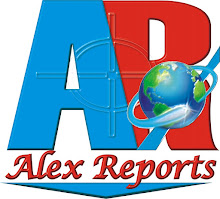By Idris Bakare
With abundant crude oil resources, Nigeria’s shipping firms are waiting endlessly to enjoy the patronage of crude oil freight arrangement, which has hitherto favoured their foreign counterparts.
Despite its rich history in global maritime trade, Nigeria has continued losing billions of dollars in freight to foreign shipping lines over the inability of the Nigerian government to successfully operate a vibrant national carrier to lift its crude oil.
It was also discovered that Nigeria is also losing huge sums of money through capital flight in the way and manner her crude oil is lifted to other countries over the years.
The indigenous shipping firms continue to suffer a huge loss to their foreign counterparts, who have been benefiting from lifting the nation’s crude oil based on the FOB arrangement.
At the moment, the country is losing over $60m of potential annual revenue to their foreign counterparts due to the lack of indigenous vessels, considered critical and essential to trade facilitation worldwide.
However, Sale of Nigeria’s crude oil has been on FOB terms for over 40 years. Under these terms, buyers reserve the right to nominate the ship that will carry their cargo to the market. All Nigerian crude oil buyers nominate foreign vessels to ship their cargoes and none has ever nominated a Nigerian vessel.
Since the liquidation of NNSL, Nigeria has not been able to re-establish another shipping line 26 years after. Over these years, several committees have been set up to work out modalities to establish a sustainable shipping line, but to no avail as none of the committee has been able to come up with anything tangible.
Reacting, maritime stakeholders have frowned at the uncoordinated efforts by current administration to clamp down on foreign vessel violating the nation’s Cabotage law by operating in the nation’s coastal water illegally.
The Cabotage Act is primarily to reserve the commercial transportation of goods and services with Nigeria coastal and inland waters to vessels flying the Nigerian flag and owned by a Nigerian.
The Nigeria Shipowners Association (NISA) has said that the exclusion of Nigerian shipowners has cost the country billions of dollars as Nigerian-owned vessels are left out to play a role in the lifting of crude, saying foreign vessels remain a key player in the conveyance of this product.
The group said the continuous undermining of the Cabotage Act 2003 which forbids foreign vessels from operating within the Nigerian coastal waters has been an issue, calling on the Federal government to clamp down on these illegal practices.
Speaking, Chairman of the Board of Trustees (NISA), Chief Issac Jolapamo, said shipowners have lost out in the present government, saying there is need to hold an election before the end of the year in order to constitute new executives that would move the association forward.
He said NISA members were the foremost contributors in the Cabotage Vessel Financing Fund (CVFF), but the government has excluded shipowners from benefiting from the proceed of the fund.
He said NISA needs to form a strong force to be able to take its pride of place in the shipping industry.
“We must not allow NISA to die. There is a need to chart a new way forward. The main issue is how to bring back the association to take its pride of place in the maritime industry. We need to reposition NISA before the next government comes into power.
“We got the Cabotage Act to be passed into law. We also got the past governments to give recognition to NISA or even when it was ISAN and I believe we can still do it again,” Jolapamo added.
On his part, Emmanuel Ilorin, a member of the association, said that a house that is divided cannot stand, adding that the challenges facing the association is enormous, which it cannot deal with unless the association reconciles with the aggrieved members.
He called for reconciliation before going for election in order to put an end to the actions of people who are undermining the association.
Adewale Ishola, another member, who called on members to rally around the BOT to save NISA from crumbling, said the association needs to go for reconciliation.
He pointed out that ship owners need to push for the change of Nigeria’s trade policy from Free on Board to Cost, Insurance, and Freight in order to improve the opportunities available for Nigerian ship-owners to participate in the crude oil lifting business.
“We are not doing things right. We should have been carrying our cargoes and not foreigners, but we can only be heard if we form a strong force,” Ishola said.






Post A Comment: